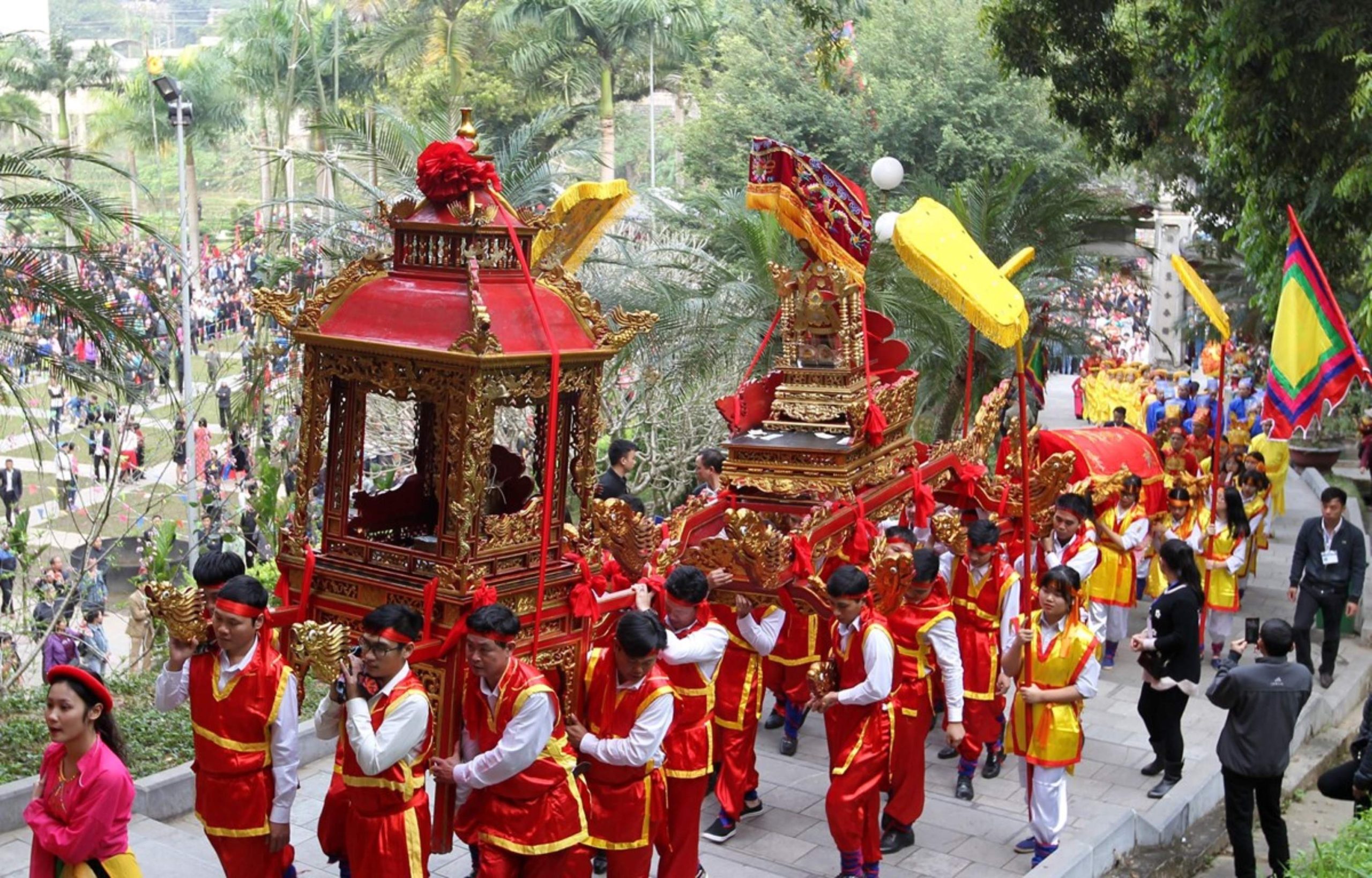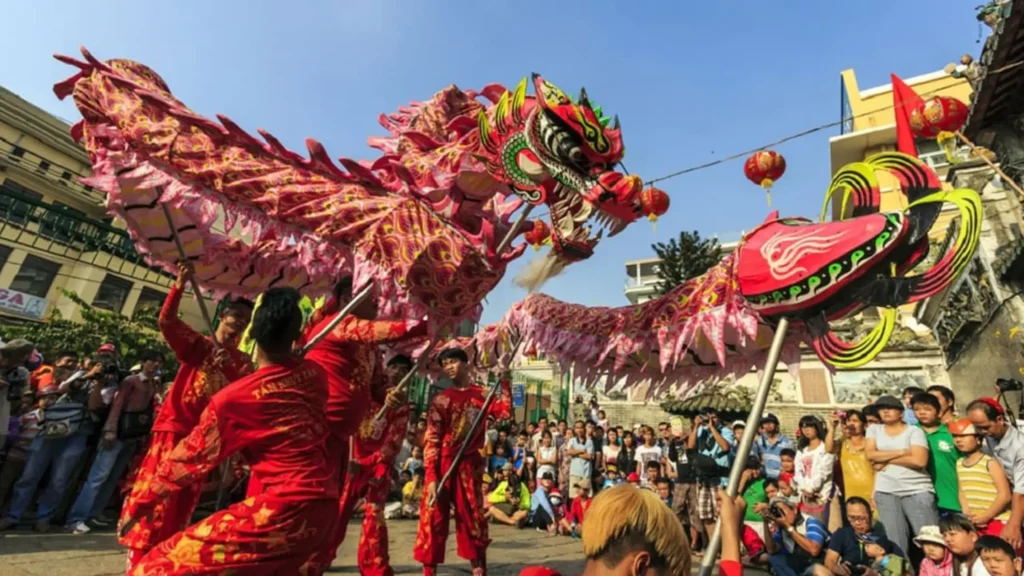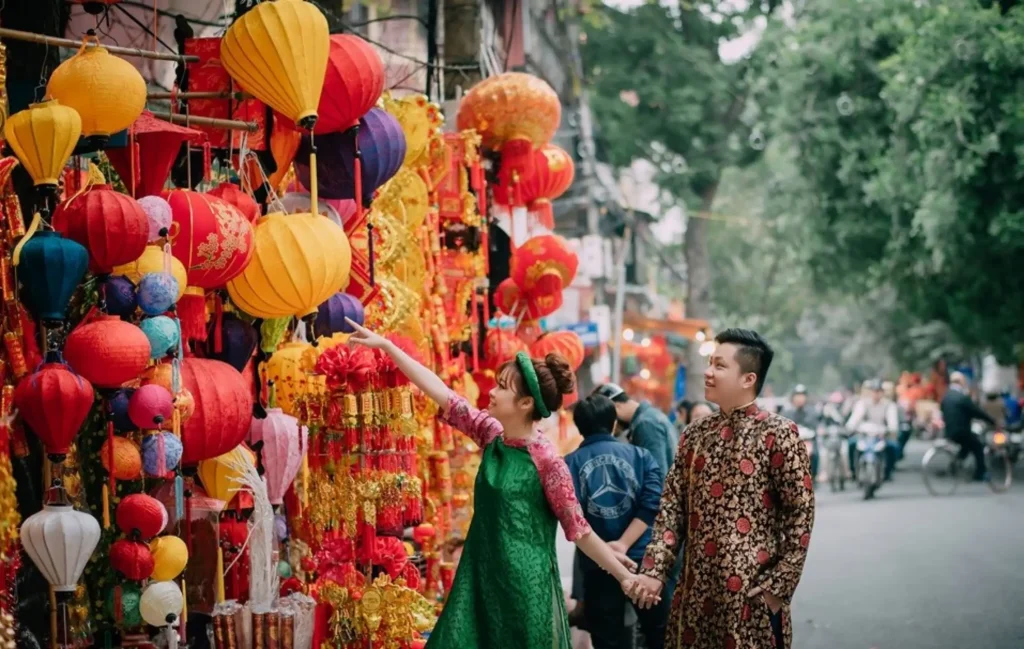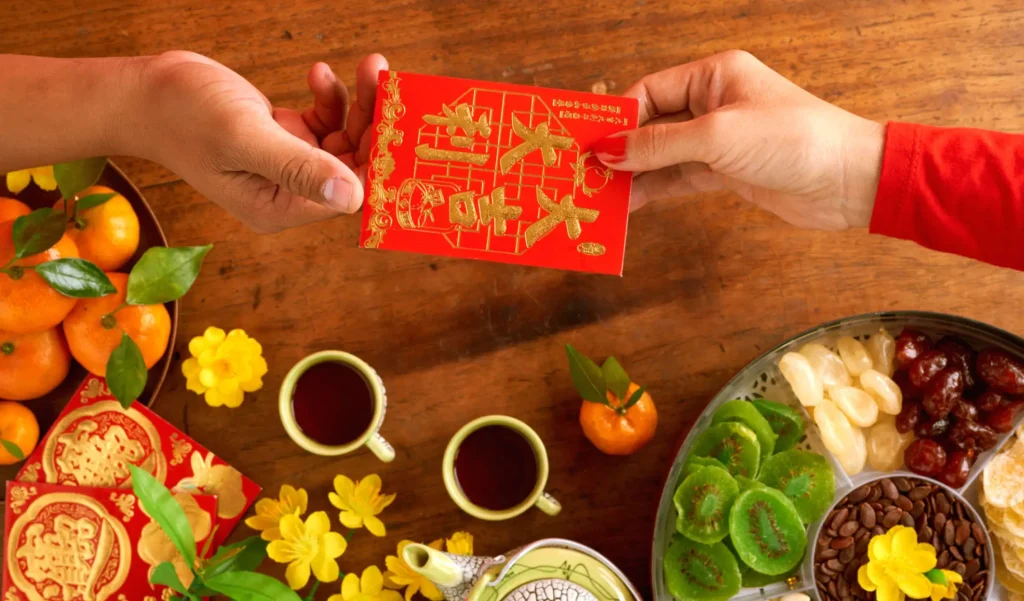Vietnamese New Year: Things to Do and Not Do

Table of Contents
ToggleTet, or Vietnamese New Year, is the biggest celebration in Vietnam, kicking off the Lunar New Year with joy, family time, and fresh starts. Usually happening between late January and early February, Tet is all about renewal and new beginnings—a perfect time for locals and visitors alike to soak in Vietnamese culture. If you’re planning to join the festivities, knowing the dos and don’ts is key to making the most of this special time. Let’s dive into the traditions to follow and what to steer clear of for a truly unforgettable Tet experience!
The Spirit of Tet: An Overview

Tet, or Tết Nguyên Đán, means “Feast of the First Morning of the First Day,” and it’s so much more than just ringing in a new year. It’s all about letting go of the past and stepping into a hopeful, prosperous future. Preparations kick off weeks ahead—people clean their homes, settle debts, and refresh family altars to honor their ancestors. The streets are filled with colorful decorations, blooming flowers, and the lively buzz of markets getting ready for the big celebration.
Tet lasts several days, and each one has its own vibe. The eve of Tet is all about family reunions, while the first few days are for visiting relatives, temples, and close friends. Whether you’re a local or just visiting, Tet is a great way to dive into Vietnamese traditions and values. But with all its traditions, there are some unspoken rules to keep in mind. Knowing what to do (and what not to do) during Tet is key to celebrating it the right way.
Things to Do During Tet

Prepare Your Home and Spirit in Advance
Tet is a festival of renewal, and this begins with a thorough cleaning of the home before the holiday starts. Cleaning symbolizes the removal of bad luck and negative energy accumulated over the past year. It’s not just about tidying up; it’s a spiritual practice aimed at creating a fresh and inviting space for new opportunities. Families also replace old household items and decorate their homes with peach blossoms, kumquat trees, and red banners to invite luck and prosperity.
In addition to cleaning, it’s essential to resolve debts, mend strained relationships, and clear up misunderstandings before Tet. This ensures you enter the new year with a clean slate. Markets and shops are particularly busy in the weeks leading up to Tet, as families stock up on food, traditional treats, and new clothes. It’s also a good time to buy gifts for loved ones, as exchanging presents is a cherished tradition.
Give Lucky Money (Lì Xì)
A beloved Tet tradition is the giving of lì xì, or lucky money. Encased in red envelopes, this money is gifted primarily to children and the elderly as a token of good fortune. The act symbolizes blessings, prosperity, and well-wishes for the new year. While the amount of money inside the envelope varies, it’s the thought and respect behind the gesture that truly matters.
When presenting lucky money, always use both hands, as this shows sincerity and reverence. It’s also customary to offer warm wishes for health, success, and happiness while giving lì xì. Visitors participating in this tradition should ensure their envelopes are crisp and clean, as using worn or damaged notes is considered disrespectful. For those unfamiliar with the custom, it’s helpful to carry a few prepared envelopes to share with hosts or families you visit during Tet.
Wear Traditional or New Clothes
Clothing during Tet holds symbolic importance. Wearing new clothes signifies starting the year afresh and leaving behind past troubles. Traditional attire, such as the áo dài, is especially popular during Tet for its cultural significance and elegant appearance. Even if you don’t own an áo dài, wearing something bright and cheerful is highly encouraged.
Colors like red, yellow, and gold are favored as they symbolize happiness, wealth, and prosperity. On the other hand, black and white are generally avoided as they are associated with mourning. Choosing the right outfit not only helps you blend in with the festive atmosphere but also shows your respect for Vietnamese traditions.
Honor Ancestors
Honoring ancestors is a central theme of Tet. Vietnamese families set up elaborate altars to pay homage to their forebears. These altars are adorned with flowers, incense, fruits, and traditional dishes, such as sticky rice cakes (bánh chưng or bánh tét), which hold symbolic meanings of gratitude and unity. Families believe that ancestors return home during Tet to celebrate with their descendants, making the offerings a gesture of love and respect.
As a visitor, if you’re invited to join a family during Tet, participating in this ritual is a meaningful way to connect with their traditions. Show reverence by observing quietly or contributing a small offering, such as incense or fruit. It’s a powerful reminder of the importance of family bonds and gratitude in Vietnamese culture.
Wish People Well
Exchanging New Year greetings is a heartfelt tradition during Tet. Common phrases include “Chúc Mừng Năm Mới” (Happy New Year) or “An khang thịnh vượng” (Health and Prosperity). These wishes are often paired with bows or respectful handshakes. For children and younger family members, the act of bowing to elders while expressing wishes for health and happiness is a cherished custom.
For foreigners, learning a few Vietnamese phrases can go a long way in showing respect and earning smiles. Whether you’re greeting neighbors, friends, or hosts, this small gesture of goodwill adds to the festive spirit.
Perform a Year-End House Cleaning
Cleaning your house thoroughly before Tet sweeps away bad luck and misfortune from the previous year, making space for new blessings. This practice is more than physical tidying; it’s a symbolic act of renewal. Clean every corner, replace old items, and decorate with auspicious elements. Completing this task before the first day of Tet ensures a positive start to the year without fear of “sweeping away” your luck.
Attend a Tet Flower Market
Flower markets are iconic during Tet, bustling with vendors selling peach blossoms, kumquat trees, marigolds, and orchids. Visiting these markets is a sensory delight and offers insight into Vietnamese traditions. Flowers symbolize renewal, luck, and happiness, and purchasing them supports local businesses. Take the time to learn the meanings behind specific flowers, as each carries cultural significance.
Visit Pagodas and Temples
Visiting pagodas and temples during Tet is a deeply spiritual practice for many Vietnamese families. These visits are moments of prayer and reflection, where people wish for health, wealth, and happiness in the coming year. Temples are adorned with vibrant decorations and filled with the aroma of burning incense, creating a serene atmosphere that invites contemplation. Visitors often make offerings, such as incense sticks, flowers, or fruits, as symbols of gratitude and hope.
Things to Avoid During Tet

Avoid Cleaning on the First Day
While pre-Tet cleaning is essential, sweeping or cleaning during the holiday itself is considered taboo. This act is believed to sweep away good luck and fortune accumulated for the new year. Families are cautious to avoid any major tidying on the first day of Tet to ensure prosperity stays intact.
Similarly, taking out the trash or spilling water is discouraged, as these actions are thought to symbolize discarding wealth. If you’re staying with a Vietnamese family, it’s a good idea to follow their lead and avoid engaging in these activities during Tet.
Don’t Argue or Use Negative Language
Tet is a time for joy and positivity, so arguing, shouting, or using negative language is frowned upon. Harsh words or unpleasant discussions are believed to bring bad luck and discord for the year ahead. Families go to great lengths to create a harmonious atmosphere, avoiding conflicts and focusing on shared happiness.
Even accidental expressions of negativity can leave a poor impression during Tet. Visitors should remain mindful of their tone and words, aiming to contribute to the cheerful and harmonious mood of the celebration.
Avoid Giving Certain Gifts
Gift-giving during Tet is a delightful tradition, but certain items are considered unlucky. For example, clocks and watches are avoided as they symbolize the passage of time and a shortened lifespan. Similarly, knives and scissors are seen as bad gifts because they represent cutting ties or severing relationships.
If you’re unsure about what to give, traditional Tet gifts like fruits, wine, or sweets are safe and appreciated. Red and gold wrapping paper adds an extra layer of festivity and good fortune to your gift.
Don’t Wear Black or White
While Tet encourages wearing bright and cheerful colors, black and white are traditionally avoided. These colors are associated with mourning and sadness, making them unsuitable for a festival centered on joy and renewal. Instead, opt for vibrant colors that align with the celebratory spirit of Tet.
If you’re invited to a Tet gathering, dressing appropriately in red, yellow, or gold will not only make you feel more festive but also show your respect for Vietnamese cultural norms.
Avoid Unannounced Visits
Tet is a time for family, and unannounced visits can disrupt the intimate atmosphere of the holiday. In Vietnamese culture, the first visitor to a household during Tet is especially important, as they set the tone for the year ahead. Known as xông đất, this tradition involves inviting someone with good fortune and a harmonious personality as the first guest.
To avoid unintentionally bringing bad luck, always inform your host in advance if you plan to visit. Respect their traditions and follow their guidance on when and how to participate.
Don’t Eat Duck or Squid
Certain foods, like duck and squid, are considered unlucky during Tet because they symbolize bad luck and misfortune. Instead, stick to auspicious dishes such as sticky rice cakes, boiled chicken, and pickled vegetables. These foods carry symbolic meanings of unity, abundance, and prosperity, aligning with the festival’s celebratory tone.
Avoid Breaking Things
Breaking items like dishes, mirrors, or glass during Tet is considered a serious taboo. These incidents are thought to bring bad luck and may symbolize broken relationships or loss. To prevent mishaps, handle fragile objects with extra care. If something does break, avoid expressing negativity or worry, as this can further dampen the festive mood.
Don’t Borrow or Lend Money
Financial transactions, especially borrowing or lending money, are avoided during Tet. Such activities are believed to invite debt and financial instability for the entire year. This practice underscores the importance of financial preparedness before the holiday begins. Visitors and expats should respect this custom by settling any financial obligations before Tet arrives.
Conclusion
Tet is more than just a celebration; it’s a reflection of Vietnamese values, history, and traditions. By following the dos and don’ts outlined above, you can fully immerse yourself in the spirit of this remarkable holiday while showing respect for the cultural significance it holds. Whether you’re offering lì xì, dressing in festive attire, or enjoying traditional dishes with loved ones, Tet offers a chance to connect deeply with Vietnamese culture. Embrace the customs, and you’ll not only create cherished memories but also leave a lasting impression of goodwill and respect.
Author
Book your fondest memory here
Popular Posts
Best Family-Friendly Beaches in Florida
With its pristine beaches and warm waters, Florida is a…
Best Beaches in Florida: From Clearwater to South Beach
Florida is a beach lover’s paradise, and that’s no exaggeration.…
Best Places to Visit in Florida During Winter
Winter is the perfect time to step away from the…
Categories
- Best Places (25)
- Destinations (26)
- Experiences (21)
- Photography (1)
- Travel (48)
- Travel Products (7)
- Trip Style (8)
Search With Tags
Join Our Newsletter
Get Your Daily
Dose
Of Travel Inspiration
"*" indicates required fields


